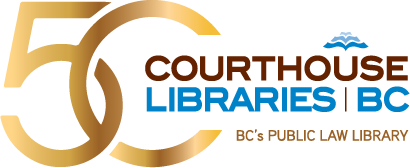The Safe Streets and Communities Act, S.C. 2012, c. 1, s. 109 amends the Criminal Records Act , R.S.C. 1985, c. C-47, to substitute the term 'record suspension' for the term 'pardon', effective March 13, 2012 (upon Royal Assent).
A record suspension allows people who were convicted of a criminal offence, but have completed their sentence and demonstrated they are law-abiding citizens for a prescribed number of years, to have their criminal record kept separate and apart from other criminal records.
Under the Criminal Records Act, the Parole Board of Canada (PBC) may order, deny, or revoke record suspensions for convictions under federal acts or regulations of Canada.
Record Suspension application guide and forms are available online, or from Parole Board of Canada, RCMP offices, provincial and municipal police offices and courts of justice. An applicant does not need a lawyer or representative to apply for a record suspension. For assistance, call the Records Suspension number at the Parole Board of Canada at 1-800-874-2652.
A person does not need to apply for a record suspension if their criminal record consists only of absolute or conditional discharges. Absolute or conditional discharges handed down by the court on or after July 24, 1992 will automatically be removed from the CPIC computer system one year (absolute discharge) or three years (conditional discharge) after the court decision.
For discharges given before July 24, 1992, to be removed from the record, a person must contact the RCMP.
Courts and police services, other than the Royal Canadian Mounted Police (RCMP), are under provincial and municipal legislation. This means that they do not have to keep records of convictions separate and apart from other criminal records.
If you have been convicted of an offence, you may subsequently be refused entry into another country, even if you have since been granted a record suspension in Canada.
Crossing into the United States
If you have any criminal record, no matter how minor or how long ago the offense, you may be refused a visa or entry to the United States. There may also be problems in traveling through U.S. airports.
Under U.S. law, a pardon issued by Canadian authorities is not recognized for purposes of entry into the United States. Even though you may have entered the United States without hindrance in the past, you may be denied entry at a future date based upon disclosure/discovery of your criminality.
Not all criminal convictions create an ineligibility to enter the U.S., but any past criminal record must be declared. Attempting to gain entry without declaring that you have been arrested could result in a permanent ineligibility and/or detention.
Canadian citizens with any criminal record should contact the Department of Homeland Security (DHS) or Customs and Border Protection (CBP) at a Port of Entry well in advance of travel to the United States to determine whether their criminality makes them ineligible for admission without a waiver of ineligibility.
To apply for a waiver, you must submit the following documents to the the U.S. Department of Justice (USDOJ):
- form I-192 – Application for Advance Permission to Enter as Non-Immigrant
- form G325A – Biographic Information
- a set of your fingerprints on RCMP C216 form
- a certified criminal record document from the RCMP in Ottawa
- you may be asked to provide a local court document if there are charges involved
- if there are pardoned criminal convictions involved, a request can be made through the Federal Privacy Act for a certified document of pardoned offences by visiting the Parole Board of Canada website or calling (613) 998-6362 for more information.
Form I-192 and G325A are United States government forms, and are included in a package of materials that can be obtained at the U.S. / Canada border. The package includes detailed instructions on obtaining a U.S. Waiver.
Consult the U.S. Citizenship and Immigration Services (USCIS) and U.S. Customs and Border Protection (CBP) websites for more information on U.S. Waivers.
Record suspension application guide and forms
Parole Board of Canada - fact sheet
Parole Board of Canada - record suspensions
Parole Board of Canada - contact information
Parole Board of Canada - publications and forms
How to apply for a record suspension - video tutorial
Department of Homeland Security (DHS)
U.S. Customs and Border Protection (CBP)
U.S. Customs and Border Protection (CBP) - ports of entry
U.S. Department of Justice (USDOJ)
U.S. Citizenship and Immigration Services (USCIS)
Parole Board of Canada
National Office
410 Laurier Avenue West
Ottawa, Ontario
K1A 0R1
Telephone: 613-954-7474
Email: Info@pbc-clcc.gc.ca
Parole Board of Canada
Pacific Regional office
1925 McCallum Road, 2nd Floor
Abbotsford, British Columbia
V2S 3N2
Telephone: 604-870-2468
Fax: 604-870-2498
Email: Communications-pac@pbc-clcc.gc.ca
Embassy of the United States of America
Criminal Ineligibility
PO Box 866
Station B
Ottawa, Ontario
K1P 5T1
Telephone (General): 613-688-5335
